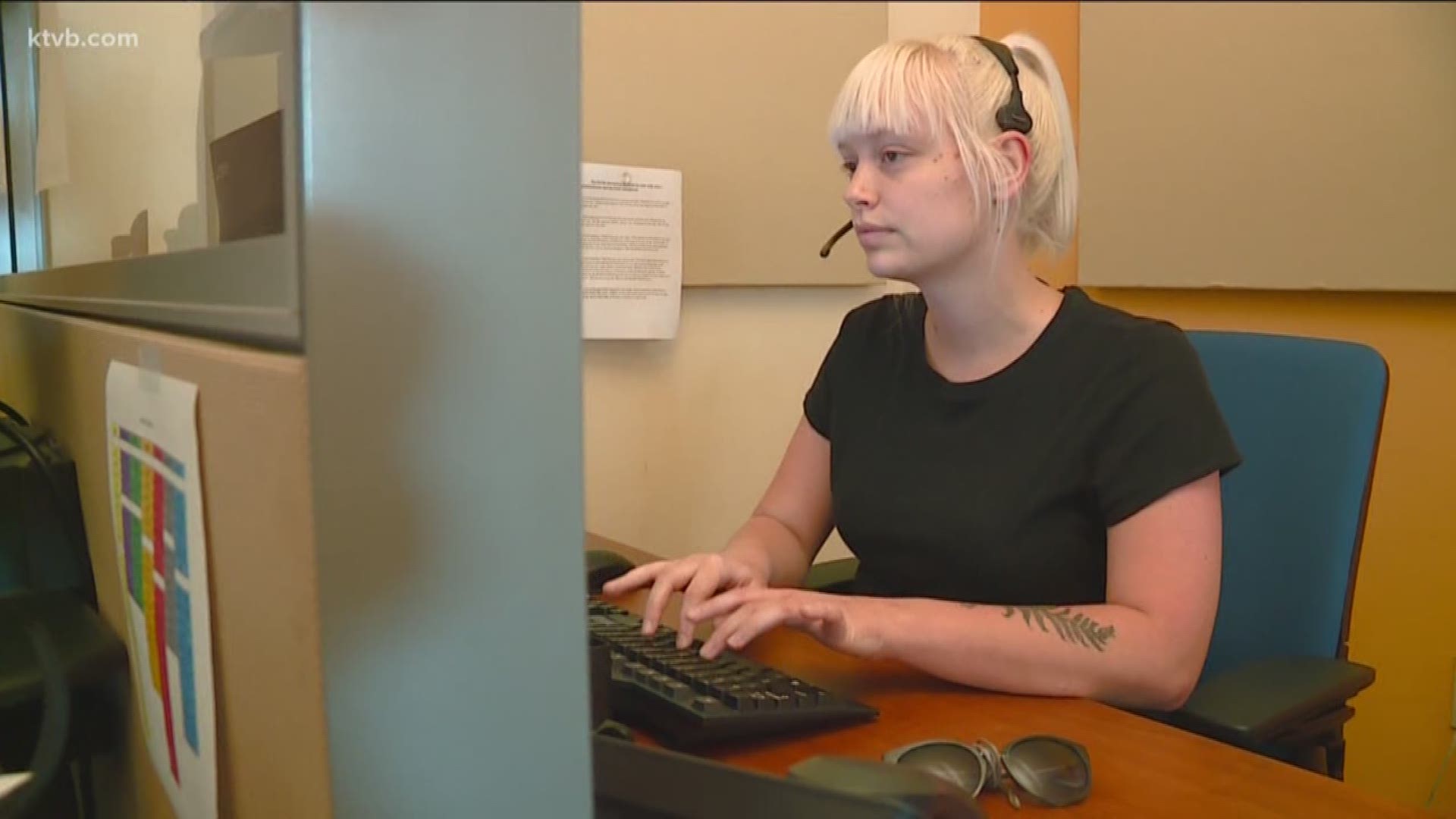BOISE — Tragically, Idaho is consistently among the states with the highest suicide rates.
To fight this public health epidemic it takes collaboration and partnerships, which is why St. Luke's and the Idaho Suicide Prevention Hotline are teaming up to launch a new support system this month.
According to the Suicide Prevention Action Network of Idaho, an average of one person every 12 minutes died by suicide in the United States in 2016; Idaho had the 8th highest suicide rate in the country that year.
“I always say suicide prevention has to be collaborative, integrated, sustained and adequately funded in order to be effective,” said ISPH Executive Director John Reusser.
That’s the mission behind the hotline’s new partnership with St. Luke’s Health System.
“I’ve had this vision of having the hotline really integrated into the fabric of mental health crisis response throughout our state," Reusser said. "So it's these sort of steps that get us closer to that dream, to realizing that dream."
Reusser’s dream is one that he says will decrease those harrowing statistics and save Idahoans' lives.
“It just makes us all stronger, it makes the net tighter to be able to support folks when they find themselves in need,” said Michele Betts, St. Luke’s Treasure Valley director of social work and spiritual care.
St. Luke’s and the Idaho Suicide Prevention Hotline have been in talks for a year, determining how the hotline can be a follow-up referral for patients discharged from the emergency department who are suicidal and how they can support them in their transition.
Reusser says the emergency department follow-up calls are for discharged patients who have some suicide risk factors but do not meet in-patient admission criteria, which he says applies to most of the population that comes to the emergency room that is suicidal.
“We were seeing people come in pretty soon right after they left the emergency room or hospital. And that’s always been a concern,” Betts told KTVB. “We know that first call can be really intimidating, challenging stigma related to that. So the idea that these well-trained expert suicide hotline volunteers would reach out proactively is just really exciting.”
People have to opt-in to the program and are not forced to participate. They would sign an information release form, contact information and perhaps a brief summary for their emergency room visit.
“It’s really important that we have support and care for transitions for people moving from the emergency department to the community," Reusser said. "So we are in a really unique role to make those outbound calls."
About 36 hours after the person is released from the hospital, trained volunteers will reach out, reassess their safety and discuss their safety plan made at the hospital. They'll then schedule a structured series of calls at least once a week over the next 30 days.
“A large percentage of persons that attempt suicide have been seen by a doctor within 30 days of that attempt," Reusser said. "These sort of partnerships, these sort of follow -up call programs are proven to reduce rates of suicidality in discharged emergency department patients.”
These relationships between hospitals and organizations like the suicide prevention hotline are also proven to reduce rates of readmission.
“If there’s any gaps or any additional support then they will reach out and/or provide connections in the community," Betts said. "So it's just a wonderful model of partnering with our community experts and other agencies to really fill this gap that's a community wide problem.”
The program is starting with St. Luke's Boise, Meridian and Nampa hospitals. If there are enough resources, Betts said it could go statewide to all their facilities. The hotline has a similar partnership already in place with Saint Alphonsus as well.
“To have this extra hand reaching out is nothing but a win-win situation so I can't imagine it would not expand and be successful,” Betts said.
The Idaho Suicide Prevention Hotline is always there for you. If you or someone you know is thinking about suicide, please call the hotline at 208-398-4357.

